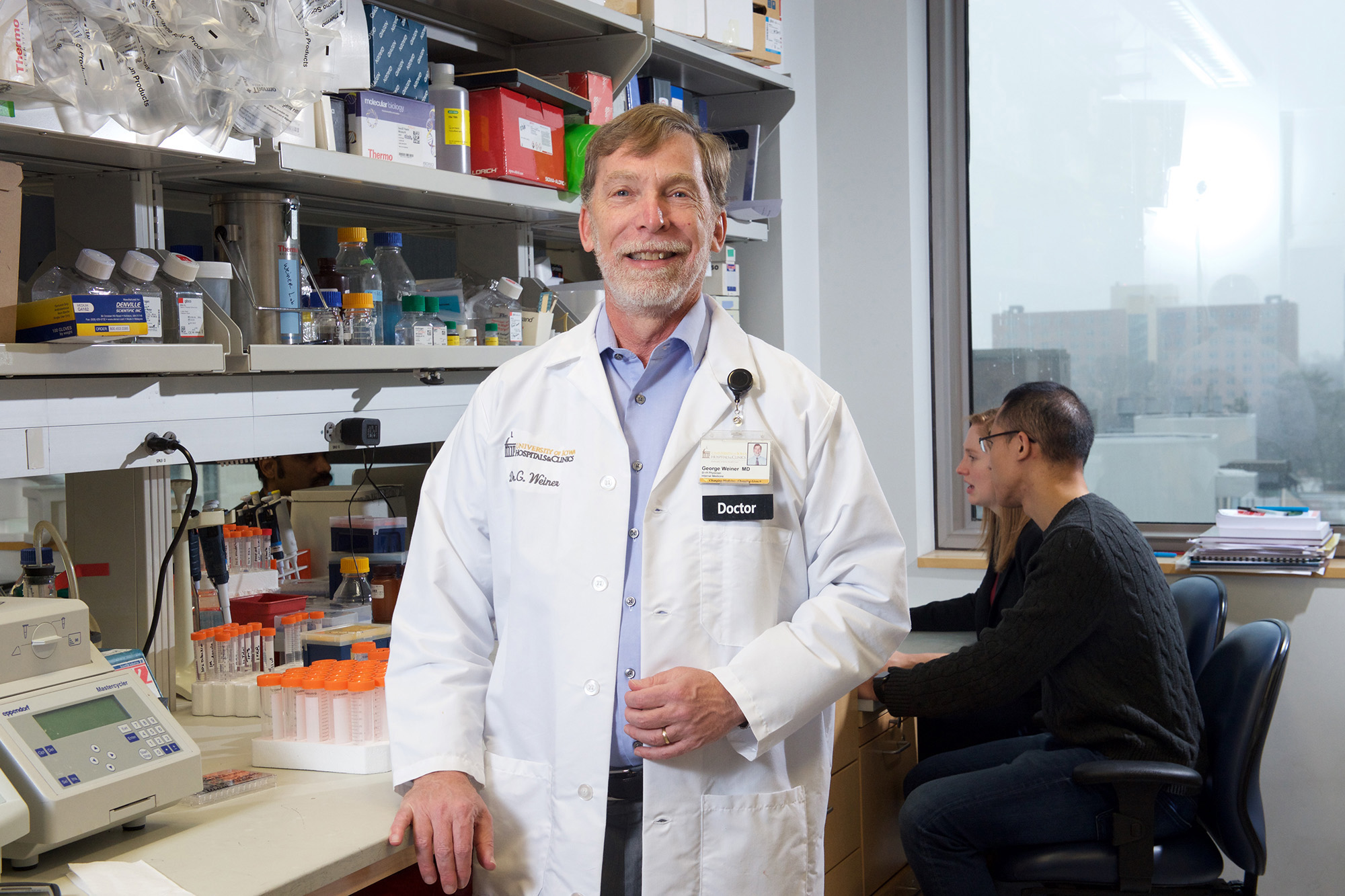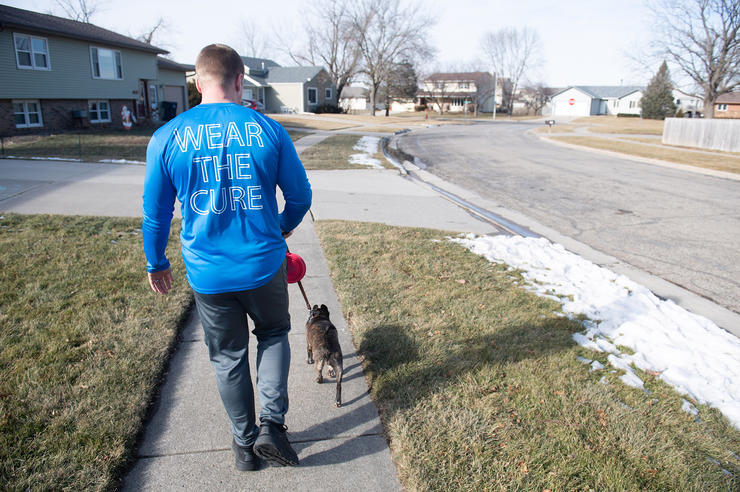Discussing the future of cancer treatment

When George Weiner was a teenager, he lost his mother to multiple myeloma, a cancer that forms in a type of white blood cells called plasma cells. She died within nine months of her diagnosis. Her brother received the same diagnosis decades later, yet he benefited from advances in therapy and lived another 20 years, dying of an unrelated cause.
Weiner, who has been a hematologist–oncologist at Iowa since 1989, is director of the university’s Holden Comprehensive Cancer Center. Though he plans to step down from that leadership role in 2022, he will continue his cancer research as a faculty member. He recently spoke about exciting developments in the field, including harnessing the immune system’s power to kill cancer cells.
Did your mother’s death inspire you to pursue cancer medicine?
I have asked myself that question and honestly do not know for sure. I can say that the idea of applying science to help people was something I always aspired to, and this likely was influenced by my experience with my mother’s illness. It illustrated how much we still needed to learn. Another factor that influenced my career path was the desire to work in a field that I thought would change dramatically during my career. I wasn’t the kind of person who wanted to learn how to do something and do the same thing for 40 years. I think cancer medicine sort of pulled all those things together. Little did I know how much cancer medicine would change in that amount of time.
“I have no doubt that in 10 years we’ll be able to help people who today have few options. Will we be able to cure all cancers? I don’t think so, but we’ll be able to help a lot more people live long and productive lives.”
What have been some of the biggest advances in your career as a cancer researcher?
When I started working in cancer immunotherapy—or using the immune system to treat cancer—many of the leaders in the cancer field told me that I was throwing my career away. They said cancer immunotherapy would never work. Now we know that in fact it does work. Although we’re only at the start of using the immune system to treat cancer, many patients already benefit. This is incredibly gratifying.
Another great advance is our ability to dive into the very nature of cancer at the genetic level and analyze cancer genetics for each patient. We can then personalize therapy based not only on that patient’s own needs and wants and where they are in life’s journey, but also on the nature of the makeup of the cancer itself. That’s another very exciting development. Not only are research discoveries providing more options for patients who develop cancer, but major strides also are being made in improving cancer prevention and early detection.
On the other side of the coin, we never had imagined how complex cancer is. We were quite naïve in hoping to find a single cure for all cancers. Now we know that each cancer is different, including their underlying genetics. Finding a single cure for cancer is not going to be possible—instead, we need to individualize treatment for each patient.
The field is evolving faster than ever. All the basic research investment we’ve made over the past three decades is really starting to pay off in new approaches not only to cancer therapy, which is the focus of my own work, but also to prevention and early detection.
Is immunotherapy something that can be used to treat different types of cancer?
Yes, cancers each express novel molecules that the immune system can recognize. In some ways, it is similar to how the COVID-19 vaccine generates an immune response against a COVID-19 protein. The problem with cancer is that each person’s cancer expresses its own target protein, so we can’t produce a cancer vaccine that can be used off the shelf. Instead, we are developing ways to help the immune system identify the target protein all by itself. One such approach in which we have particular expertise at Holden is called “in situ immunization” where we turn the cancer itself into a vaccine without needing to identify the target protein.
It looks like this approach is working in some patients, but it’s quite complicated. We’re still exploring it in clinical trials at Holden for a variety of different cancer types, including melanoma and lymphoma. We are also continuing to learn more through basic laboratory research.
To summarize, we now know that cancers might look identical under the microscope and occur in the same organ in two different patients, but they’ll have very different molecular causes and respond very differently to treatment. A major focus of research right now is to develop new approaches to therapy despite this incredible variability, and to figure out how to identify the right treatment for the right patient at the right time.
How confident are you that significant advances will happen in your lifetime?
I’m very confident—such advances are happening right now. I have no doubt that in 10 years we’ll be able to help people who today have few options. Will we be able to cure all cancers? I don’t think so, but we’ll be able to help a lot more people live long and productive lives.

